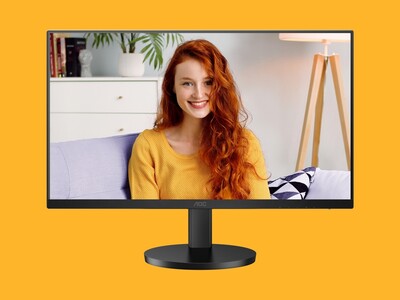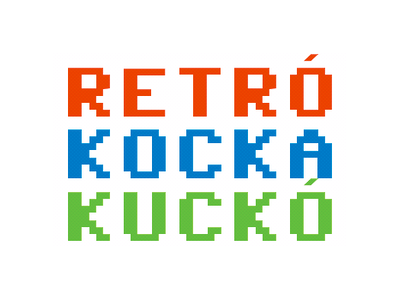- Z Fold6 imitátor árulkodik a fogyókúrázó igaziról
- Milyen okostelefont vegyek?
- Hatalmas külső kijelzővel és akkumulátorral érkezett meg a Honor Magic V Flip
- Bivalyerős lett a Poco F6 és F6 Pro
- Samsung Galaxy S23 Ultra - non plus ultra
- Android szakmai topik
- Nem egyedül érkezett a OnePlus 6
- Redmi Watch 4 - olcsó hús, sűrű a leve
- Samsung Galaxy S23 és S23+ - ami belül van, az számít igazán
- Yettel topik
Hirdetés
-


Költséghatékony 4K-s monitorokkal adott magáról életjelet az AOC
ph A 68,58 cm-es, pszeudó-10 bites páros megelégszik a 60 Hz-cel, de azt dinamikusan variálhatja, és a fedélzeti I/O-ja sem olyan rossz.
-


Limitált ideig már kipróbálható a The Alters PC-s verziója
gp A 11 bit studios különleges túlélőjátéka konzolokra is megjelenik majd.
-


Retro Kocka Kuckó 2024
lo Megint eltelt egy esztendő, ezért mögyünk retrokockulni Vásárhelyre! Gyere velünk gyereknapon!
-

Mobilarena

Új hozzászólás Aktív témák
-
válasz
 contaxg
#66536
üzenetére
contaxg
#66536
üzenetére
Erre referálnék kicsit szintén ugyan ebből a fórumból való és a “Miska” felhasználótól származik, aki ugye egyben a HQPlayer fejlesztője is.
Egy köztes válasz egy másik felhasználótól.
“Quite true what Rob says. PC's are not real time devices. DACs pretty much have to be.”Miska válasza erre:
“PC can be a realtime device, but music playback isn't really a realtime process. One of the advantages of running software at GHz speeds in a PC is that it can do multiple things DAC cannot do, such as:
- Lookahead of the data, in player I can inspect upcoming future content way before it needs to go out
- Perform adaptive processing, I can watch both input and output of the processing algorithm and as necessary go back in time and recalculate the data (even couple of times) with different set of parameters and still get the data processed well in advance before it needs to go outMost DACs run their processing synchronously, so every N input samples they have X clock cycles and output K samples. While software processing thanks to higher clock speeds can be asynchronous, spending varying number of clock cycles per sample, depending on needs. This gives quite a lot of flexibility to algorithm design.
Sometimes I've been asked what would it take to run HQPlayer's algorithms on FPGA, and when I tell, people run away screaming.”
Válasz erre egy másik emberektől:
On 5/1/2018 at 10:25 AM, Miska said:
music playback isn't really a realtime processYes it is, just not a very demanding one.
Miska válasza erre:
“OK, I should have said "DSP processing in music playback" to keep it apart from just shoveling the data to the conversion stage. Of course samples need to flow constantly to conversion stage, but that is separate topic from the DSP processing. Although DAC chips and FPGA implementations bundle the two together, with down-sides of the two usually being synchronous to each other (limiting algorithm design).
If you can make DMA buffer for the audio interface big enough, you can upload entire track or album to RAM and let the DMA run from there without CPU/software involvement. Like it was done (track basis) at some point for mobile device music playback - which would allow CPU to go to deep sleep during music playback. Maybe music playback is still handled partially same way, but I haven't been involved in mobile device development since 2011.”
[ Szerkesztve ]
日本 - ダイレクトストリームデジタル
Új hozzászólás Aktív témák
Hozzászólás előtt olvasd el az összefoglalót!
A topikban terméket, munkát, szolgáltatást hirdetni tilos!
- Elemzés Erősítők tápellátása 2.
- Tudástár Parazitaeffektusok az áramkörben 1.
- Tudástár Melyik áram merre folyik a NYÁK földhálózatán?
- Tudástár Erősítők tápellátása
- Bemutató DSD: divatőrület vagy a zene új dimenziója?
- ASUS TUF Gaming A15 FA507XU- LP4050W Gray ELADÓ!!!!!! (GARANCIÁLIS 36-HÓNAP)
- Újszerű Spigen Liquid Air Folio Tok, iPad Pro 12.9, Fekete
- Huion Kamvas Digitalizáló Tábla / Rajztábla / Külső Monitor okos tollal /// ÚJ // Számla + Garancia
- ESR 360 Mágneses Tok és Billentyűzet Ipad Pro /// Air // Bontatlan // Számla + Garancia
- Synology DS223 (2GB) /// Teljesen Új // Számlával és 2 év Garanciával










